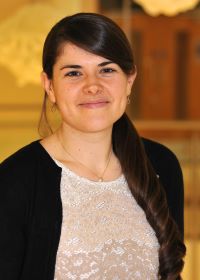Areas of interest
Second/foreign language learning and teaching, including:
- Young language learners
- Classroom-based learning and foreign language pedagogy
- The development of grammatical knowledge
- The role of explicit knowledge
- The role of individual learner differences (in particular aspects of language learning aptitude such as language analytic ability)
- The role of technology (in particular game-based learning)
Postgraduate supervision
Masters Level and PhD and EdD Level Supervision offered in these areas:
- Young language learners
- Classroom-based learning and foreign language pedagogy
- The development of grammatical knowledge
- The role of explicit knowledge
- The role of individual learner differences (in particular aspects of language learning aptitude such as language analytic ability)
- The role of technology (in particular game-based learning)
Current and Recent PhD and EdD Students, with Topics/Titles of their Research:
Current (as first supervisor)
- Li, Xiaobo: Exploring a Combined Input and Output-Oriented Teaching Approach to Develop Chinese Secondary School Students’ English Grammatical Knowledge: A Classroom-Based Experimental Study (Second supervisor: Professor Suzanne Graham)
- Xu, Tongjia: An investigation into the effect of different forms of explicit corrective feedback on the acquisition of English 3rd person singular ‘-s’ by Chinese learners of different proficiency levels (Second supervisor: Professor Suzanne Graham)
- John Fowler: A critical incidents technique explorative study into key satisfaction and dissatisfaction determiners for undergraduate students in the context of Sino-UK TNE projects. (Second supervisor: Dr Daguo Li)
Current (as second supervisor):
- Ye, Jiarun: Digital vocabulary learning: The role of self-regulation and learning approaches (First supervisor: Dr Anthony Zhang)
- Sharon McIlroy: A study of headteachers of Chinese, Japanese, Hungarian, and Polish complementary schools in Southeast England (First supervisor: Dr Jo Anna Reed Johnson)
- Eman Aljohani: Motion Events in Arabic and English: a study on monolingual, bilingual and translators (First supervisor: Dr Fraibet Aveledo)
Completed
- Muna Muqaibal: Evaluating the Effectiveness of Spaced Practice using Computer Assisted Language Learning (CALL) in Teaching and Learning English Vocabulary in the Classroom: The Case of Oman (First supervisor: Professor Catherine Tissot)
- Muhammad Yasir Yahya: Improving speaking performance and L2 motivation through task-based language teaching on Malaysian undergraduate students (First supervisor: Professor Suzanne Graham)
Research projects
The Progression in Primary Languages project is a four-year, longitudinal study exploring language learning in primary school. We are working with primary schools across England, who teach French, German, or Spanish, to track children's linguistic progression throughout Key Stage 2 (age 7 to 11). Over four years, we will build a detailed picture of how children’s language knowledge develops and the factors that affect children’s language learning. The project is funded through a UKRI Future Leaders Fellowship (Cohort 5).
NCELP is working in partnership with university researchers, teacher educators and 18 Specialist Teachers in nine Leading Schools across the country acting as Hubs to a network of 45 schools. The initiative aims to improve language pedagogy and curriculum design, by promoting research-informed teaching practices and sharing of resources and good practice. The Centre aims to help more young people learn foreign languages. Funded by a £2.17 million grant from the Department for Education, plus grants from the ESRC IAA, HEIF, and the University of York.
In collaboration with practitioner partners (Juliet Park, North Yorkshire primary schools), we have developed and evaluated a digital game for children aged 9 to 13 learning French. The game incorporates task-essential form-function mapping within an engaging, motivational game-based environment to teach key grammatical features (e.g. inflectional verb morphology for person, tense, number). A large-scale experimental evaluation of the game was conducted in local primary schools to assess the benefits for learning, motivation and engagement, as well as investigate whether distribution of practice (i.e. longer or shorter spacing between practice sessions) affected the outcomes. An additional aim of the project is to evaluate the potential of such games for large-scale, remote, data collection. This work forms part of the activities of the Digital Creativity Labs, funded by a £4 million grant from the EPSRC.
The Oasis initiative is establishing a systematic and sustainable culture of providing open, accessible summaries of research in the language sciences. The main aim is to address some of the long-attested challenges of communicating research beyond academia. In collaboration with journal editors, professional associations, and language educators, we have developed guidelines for writing Accessible Summaries and we are creating a critical mass of 300 one-page non-technical summaries. We are also working with journal editors to establish procedures for routinely soliciting summaries from their accepted authors. The summaries are searchable and freely available from https://oasis-database.org. We have a large network of collaborators who are writing, editing, and approving summaries in a wide range of research areas, including second and foreign language learning and teaching, multilingualism, language education, and testing. If you wish to participate in the initiative, please contact oasis@oasis-database.org. Funded by The British Academy and The Economic and Social Research Council IAA.
- Teacher-researcher engagement: An intervention and evaluation of impact (with Emma Marsden and in collaboration with the Association for Language Learning).
This project investigated UK foreign language teachers’ engagement with written research and perceptions of the relevance of research to practice. The project consisted of two main strands: 1) an online survey disseminated via professional networks and completed by foreign language teachers, teacher educators and trainee teachers to identify factors which can act as barriers to research engagement, and 2) a one-day workshop (held on February 14th 2014 at the University of York) which brought together foreign language teachers, teacher educators, and researchers to discuss and design action research projects around five themes: ICT in the primary foreign language classroom; Motivation, attitudes and identity; Progression in grammar and vocabulary; Teaching foreign language literacy; and Transition from primary to secondary school. This project was funded by the BAAL Applying Linguistics (2014).
